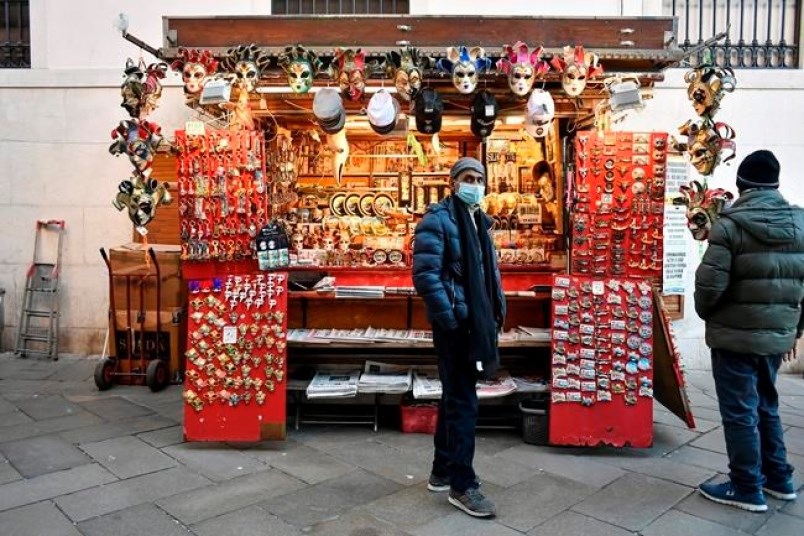“Just try wearing it for awhile,” I told my colleague. “Honestly, it’s barely noticeable.”
This was a lie, of course. You can’t strap on a human version of the Cone of Shame and not draw the attention of your co-workers. Really, with that plastic thing lashed to his head he looked like one of the women in The Handmaid’s Tale.
“I can’t scratch my nose,” he complained.
“That’s the point,” I replied. What did they tell us about stopping the spread of COVID-19? Don’t touch your face.
Except as soon as they said that, what did you do? You touched your face. I bet you have an urge to touch your face right now. I bet trying not to do so is driving you nuts.
Hence my brilliant idea for the workplace cone, just like the one the veterinarian makes your dog wear to prevent it from licking itself. Really, wearing one should be compulsory the moment you punch the clock.
Normally, people would balk at having this sort of measure imposed on them. Not now. Now they’ll do whatever they’re told — sneeze into their elbows, shoot anyone with the sniffles, stop making out in the photocopier room — to prevent the virus from taking hold. The only controversy has to do with how long we should wash our hands, two Happy Birthdays or one O Canada?
The funny thing is, the people now frantically pumping out Purell by the gallon are the same ones who don’t think twice about dragging their hacking, coughing, fever-ridden carcasses into work when sick with something less novel than this novel coronavirus. They’re the ones who would rather spread the flu like peanut butter than quarantine themselves at home for a day or two.
So, maybe the one good thing to come out of the COVID-19 crisis will be the realization that instead of spewing their pestilence all over your keyboard, people should just stay home when they’re sick.
Except they won’t, will they? They’ll keep staggering into work, whether out of a sense of loyalty or guilt — for letting down the rest of the team, the company, or the clients — or out of concern about the cost of staying home.
Note that in October an online poll conducted for staffing firm Accountemps found 89% of Canadian professionals admitted having gone to work while suffering from the flu or cold. Just over half of the respondents said they did so because they had too much work to do and were afraid of falling behind. A third said they didn’t want to burn sick days.
Another poll, this one done for the Canadian Medical Association, found eight in 10 Canadians would rather go to work ill than get a sick note from a doctor, should their employer require one. Such a requirement is bad policy, the CMA said. Instead of one ailing worker, you get an entire staff that looks like the cast of Outbreak.
Of course, some people don’t get sick time at all. While B.C. labour law says all employees are entitled to five unpaid days a year to take care of ailing family members, it doesn’t require employers to grant the workers themselves sick days, paid or unpaid.
Then there are the self-employed. If they don’t work, they don’t get paid, simple as that. Ditto for those in the growing gig economy, which typically offers few benefits. The gig economy is basically 19th-century Dickensian oppression, only with hipster haircuts and stand-up work stations.
The tenuous nature of modern employment contributes to what a BBC story referred to as “presenteeism,” pushing workers to come in when ill. The story said the typical British worker took 4.1 sick days in 2017, down from 7.2 in 1993, a change attributed to a shift in workplace culture: “Studies show that mistrust and fear of judgment from bosses have forced an increasing number of employees to come to work when sick.”
Face the facts (but don’t touch your face). We would all be healthier if we got as worked up about other workplace plagues as we do about COVID-19.



